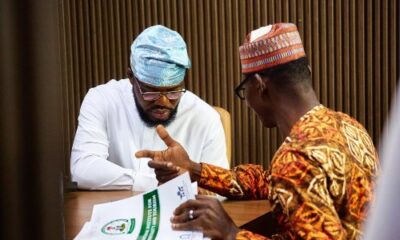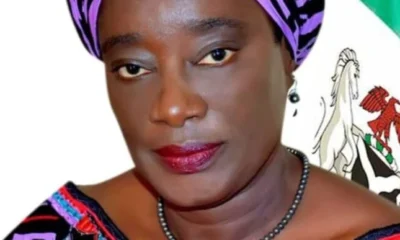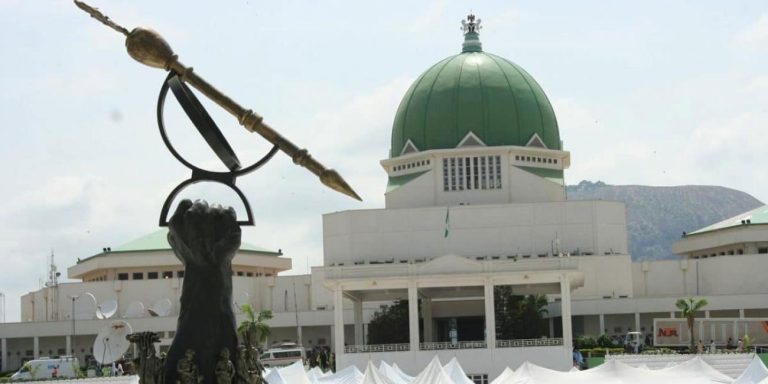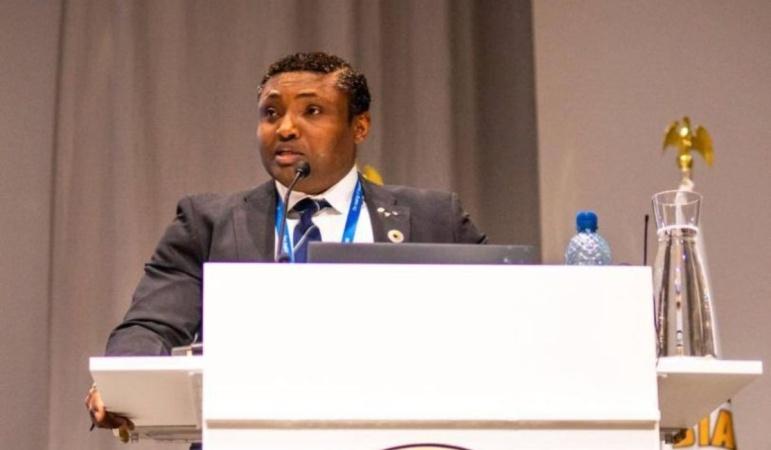There is a growing phalanx of pseudo-intellectuals parading the social media space with faux and fictitious knowledge of the indigenous oil and gas industry, and it is scary because of the grave danger they portend and present for the average Nigerian.
From X (formerly known as Twitter) to Facebook and even the photos and videos-sharing site, Instagram, they abound, in their inglorious number, lending their platforms to deliberately distort facts and spread misinformation especially to favour the narratives propounded by popular Nigerian businessman Aliko Dangote, owner of the Dangote Petroleum Refinery.
Since the refinery began operations earlier in the year, it has been one week, one controversy allegedly orchestrated by Dangote in a brazen attempt to arm-twist the Nigerian National Petroleum Corporation Limited, NNPCL, into playing by his rules.
Those conversant with the modus operandi of Dangote and his refinery say the long-drawn warfare with every institution and individual in the oil and gas value chain is nothing but a self-seeking and mindless profit maximisation tactic.
Whilst nobody begrudges Dangote’s drive for profit as a businessman, perhaps he needs to be reminded that the NNPC has a mandate to ensure and provide energy security in a way that is affordable and sustainable for the generality of Nigerians. And, the NNPCL management has declared in very unambiguous terms that it would not pander to the din of the market whether orchestrated by Dangote, his rampaging minions or anyone else.
The truth, however, is that there is an increasing army of vacuous, vicious, and vile individuals strutting the social media space defending and propagating outright and outlandish falsehoods. Of particular concern is one Kelvin Emmanuel who has become the unofficial mouthpiece of the Dangote Refinery. Going from one media house to the other, he pulls figures out of the air and projects obnoxious untruths on hapless Nigerians. With the backing of his paymaster’s billions, it is no surprise that this otherwise irrelevant and fatuous character now commands appearances on major television stations.
But it is on X that he has made lying glibly and gratuitously the Holy Grail. He once premised Dangote’s inability to secure feedstock for his refinery on the government and the NNPCL. While peddling this untruth, he conveniently forgets that the refinery had a seven-year window, during its construction phase, to lock in feedstock supplies that could last a minimum of five years. Dangote did none of that. As it would later unfold, his game plan, which Emmanuel glossed over, was to monopolise equity oil and production quotas to serve his business interests.
Another deliberate misinformation from the Dangote camp was the allegation that International Oil Companies (IOCs) and other industry players were trying to sabotage his interests. Apart from being an investor in the Dangote Refinery, the NNPC still supplies gas to various Dangote companies across Nigeria. How can anyone or any institution jeopardise their investment? What further proof of faith does Dangote and his minions need to know that the NNPC is their cheerleader, and is here to make operating in the industry seamless and a win-win for all?
Echoing Dangote’s baseless stance, Emmanuel also called for the sack of Mr. Farouk Ahmed, Chief Executive Officer of the Nigerian Midstream and Downstream Petroleum Regulatory Authority (NMDPRA), regulators of Nigeria’s midstream and downstream value chain. By Emmanuel’s warped reckoning, Ahmed had no locus to speak against Dangote or his enterprise because the latter questioned the quality of the product from Dangote Refinery and other local refineries in comparison with imported ones. Of course, Emmanuel’s was a lone voice in the wilderness because those who understand the invaluable role that the NMDPRA plays in the industry did not as much as dignify his tirade with a glance.
In a robust response to Emmanuel’s groundswell of egregious lies, Ibrahim Y. Kabo, a petroleum engineer based in Abuja, described him as “Someone who has not seen the inside of a refinery before Dangote built one, let alone understood the mechanism of the energy industry, …(yet) assuming the role of an authority in oil and gas matters.”
He went further to lampoon Emmanuel for stating that only Dangote Refinery’s products meet specifications while others are all sub-standard. “The obvious question is: whose specifications? For a refinery that has barely made four of seven pre-inauguration certifications, it sounds somehow laughable to suddenly assume the role of regulator in an industry you’ve barely entered,” Kabo said.
In the article, entitled, “The Hand of Aliko, the Voice of Kelvin: Inside Dangote Refinery’s Media Stunt Lab”, Kabo declared that from all Emmanuel’s interviews and pretensions to be an industry expert, one thing is obvious: “He lacks an understanding of both the mandate and the reach of NNPC as a national oil company.”
Kabo adds that, “Downstream is the least of NNPC’s business interests. The mandate, as per PIA (Petroleum Industry Act), is to facilitate both the extraction and commercialization of Nigeria’s oil and gas resources. 20 billion dollars may be a lot, but NNPC and industry regulators routinely handle projects of that magnitude. At best, Dangote and (Emmanuel’s) ranting are an irritation. I believe that’s why NNPC openly declared it was not interested in being Dangote’s off-taker.”
Like the Yoruba saying goes, derision does not stop the sweetness of the honey. The meddlesome minions and messengers of misinformation can continue dancing naked in the marketplace, but what is most important is that the NNPCL has assured that it will not cease doing everything in its capacity “to harness the possibilities of oil and gas, address energy demand and drive the national economy, and become the number one oil producer and supplier in Africa.”
Tayo Williams is a Lagos-based media executive

 BIG STORY3 days ago
BIG STORY3 days ago
 BIG STORY3 days ago
BIG STORY3 days ago
 BIG STORY3 days ago
BIG STORY3 days ago
 BIG STORY2 days ago
BIG STORY2 days ago
 BIG STORY4 days ago
BIG STORY4 days ago
 BIG STORY3 days ago
BIG STORY3 days ago
 BIG STORY4 days ago
BIG STORY4 days ago
 BIG STORY4 days ago
BIG STORY4 days ago
























